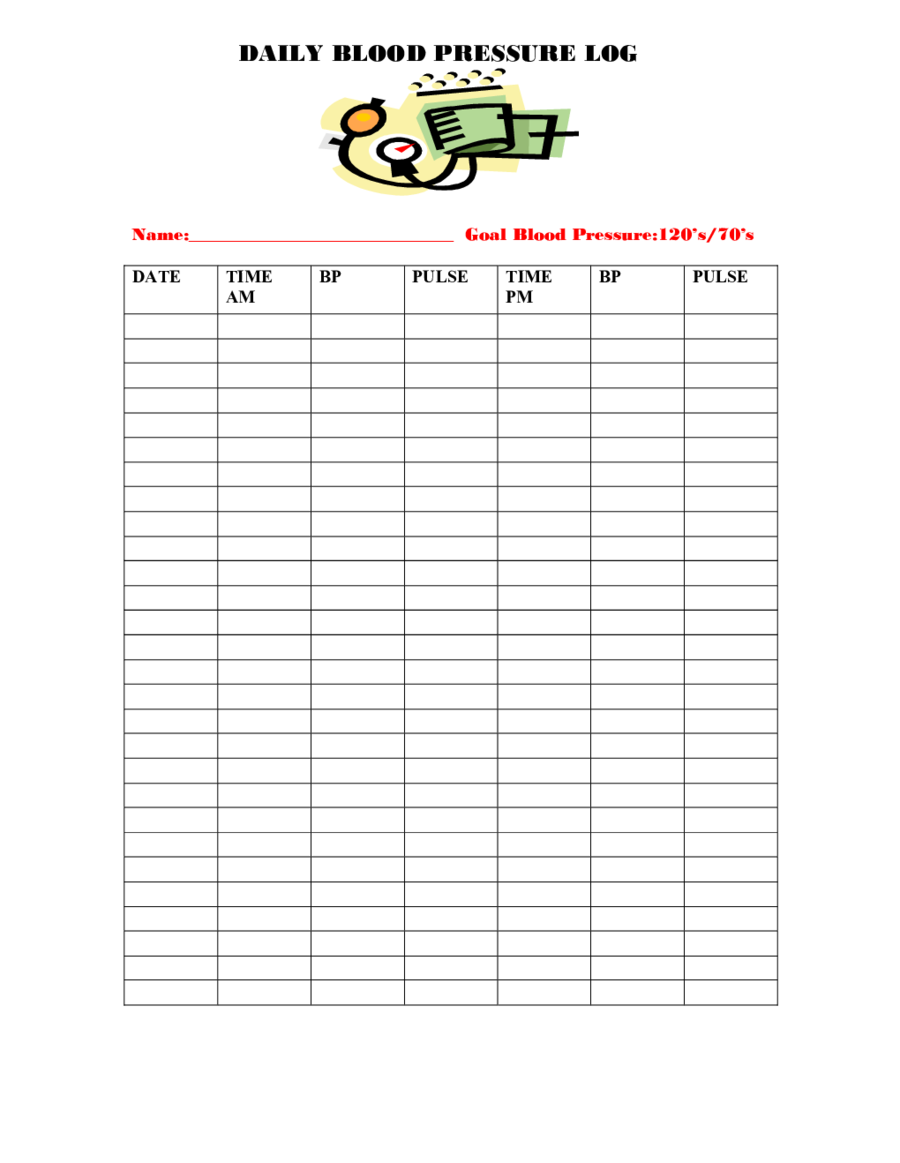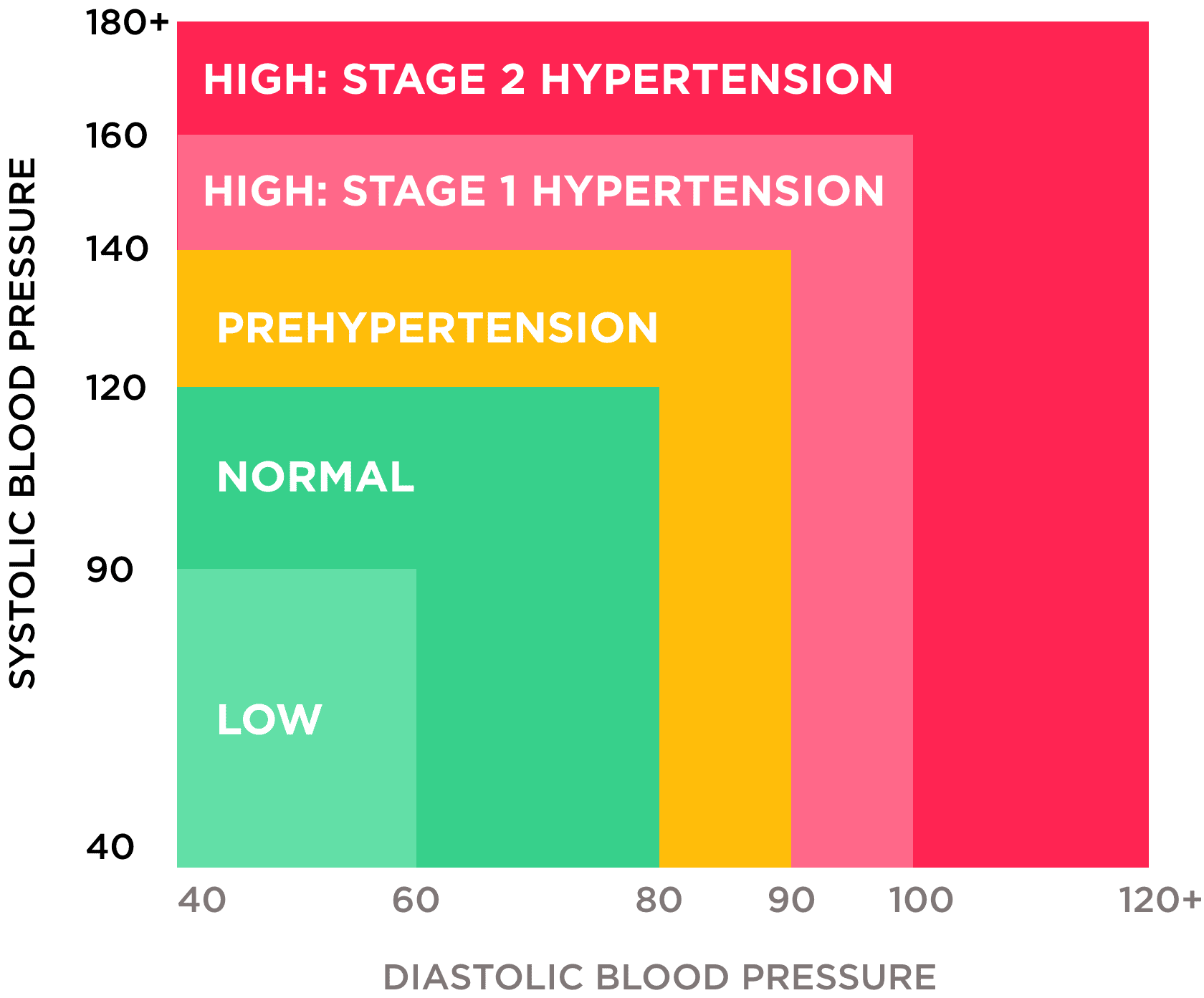
Stage 2 high blood pressure (hypertension) Talk to your provider about taking one or more medications. Stage 1 high blood pressure (hypertension) If you also have heart disease, diabetes, chronic kidney disease or certain other conditions, you may need to treat your blood pressure more aggressively. †These recommendations address high blood pressure as a single health condition. Talk to your child's care provider if you're concerned that your child has high blood pressure. *Ranges may be lower for children and teenagers. Sources: American College of Cardiology American Heart Association For example, if your blood pressure reading is 125/85 millimeters of mercury (mm Hg), you may have stage 1 hypertension.

If your systolic and diastolic readings fall into two different categories, your correct blood pressure category is the higher category. Here's a look at the four blood pressure categories and what they mean for you. An accurate measurement determines what kind of treatment you may need. To get an accurate blood pressure measurement, your health care provider typically considers the average of two or more blood pressure readings from three or more office visits. Increased blood pressure may be categorized as elevated, stage 1 or stage 2 depending on the specific numbers. Ideal blood pressure is categorized as normal. The higher your blood pressure, the greater your risk of heart attack or stroke, heart failure, kidney failure, dementia and some forms of blindness.The American College of Cardiology and the American Heart Association divide blood pressure into four general categories. High blood pressure carries risks for a number of serious conditions. If this happens, tell your doctor and have your blood pressure taken when you are standing up. Lower blood pressure when you stand up or bend over (known as postural hypotension) may make you feel faint or dizzy. High blood pressure is 140 over 90 or higher (or 140 over 80 if you have diabetes). The normal level of blood pressure is usually about 120 (systolic) over 80 (diastolic). What is a normal level of blood pressure?




 0 kommentar(er)
0 kommentar(er)
